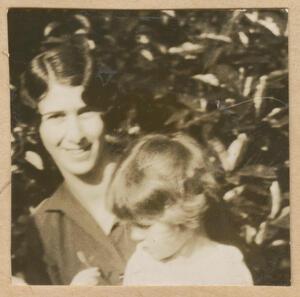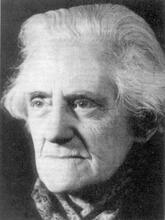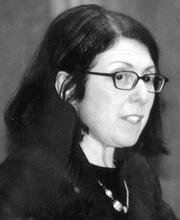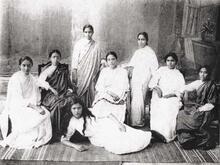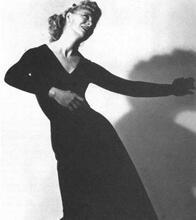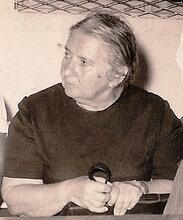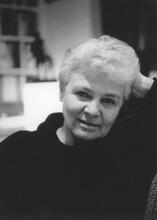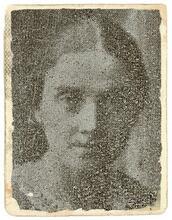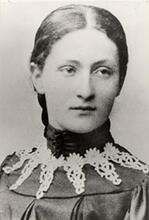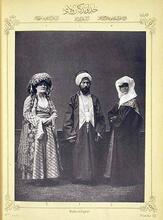Dorothy Walter Baruch
Psychologist Dorothy Walter Baruch championed a psychodynamic approach to child development that focused on the relationship between physical, emotional, and intellectual development and on rechanneling children’s feelings through play and art therapy. Baruch was the founding director of the Gramercy Cooperative Nursery School from 1924 to 1927, did experimental work on language at the Normandie Nursery School in 1929, and was a professor and director of the laboratory school of education at Whittier College from 1930 to 1940. She also organized and directed a parent education program for the National Council of Jewish Women. During WWII, she headed the National Commission on Mobilization of Volunteers for Young Children. In 1946, she opened a private practice but continued to lecture widely on education and child psychology. Throughout her career, she wrote stories for children’s magazines, novels, and articles for academic journals. She also wrote eleven nonfiction books—mainly for parents—on play therapy, discipline, and sex education.
In Dorothy Baruch’s most widely recognized book, One Little Boy, she writes: “The thoughts and feelings of childhood are dark and deep. If they creep out inadvertently and we meet them with the shock of believing them abnormal, we do one kind of thing to a child. If we meet them with the embracing sympathy born of having already encountered them and seen them as natural we do another.” Baruch’s foremost concern, expressed through a wide range of professional activities as an educator, author, psychologist, and community leader, was the healthy emotional development of the young child with the full understanding that physical, intellectual, and emotional development are all interrelated. She believed that the expression of the child’s feelings and fantasies and their respectful acknowledgment by parents and teachers were crucial not only for the individual and the family, but also for life in a democratic society. She encouraged adults to help children find ways to rechannel feelings through such activities as dramatic play, the writing of stories, poems, and journals, and the use of art materials, all widely accepted techniques today.
Early Life and Education
Dorothy Walter Baruch was born on August 5, 1899, in San Francisco, California. She was the daughter of Clarence and Rosalie (Neustadter) Walter. She studied at Bryn Mawr College from 1917 to 1919 and the University of Southern California from 1919 to 1920. She earned both a B.E. (1930) and an M.E. (1931) from Whittier College, Broadoaks School of Education, and a Ph.D. from Claremont College (1937). She married Herbert M. Baruch on April 23, 1919. They had two children, Herbert and Nancy. On June 20, 1946, she married Dr. Hyman Miller.
Career and Contributions
Baruch organized and directed the Gramercy Cooperative Nursery School (1924–1927) and did experimental work in children’s language at the Normandie Nursery School (1929–1930), both in Los Angeles. She was a professor of education and director of the laboratory school at the Broadoaks School of Education, Whittier College, from 1930 to 1940. Along with teaching in-service teacher training courses in the Burbank and Los Angeles city schools (1940–1941), she organized and headed the public relations program for the National Association for Nursery Education from 1937 to 1941. During World War II she worked with the War Manpower Commission and headed the National Commission on Mobilization of Volunteers for Young Children (1941–1942). She was a special lecturer in interracial relations at Claremont College (1944–1945). In 1946, she opened a private practice as a consulting psychologist. She was an active member of many professional groups and lectured before public and professional conferences on parent and child education, child psychology, play therapy, psychosomatic aspects of allergies, and related subjects.
Along with many stories in children’s magazines and many articles in professional journals and popular magazines, Dorothy Baruch wrote more than twenty books of fiction for children and was the consultant and coauthor of the Scott Foresman Basic Health and Safety Program Series for children. She wrote eleven nonfiction volumes, primarily for parents, on such topics as play therapy, discipline, prejudice, children in wartime, and sex education.
Dorothy Baruch was a member of B’nai B’rith and, in 1928, organized and directed a parent education department for the National Council of Jewish Women. In all that she did, Baruch strove to bring about greater understanding between parents and children of all backgrounds. Her practical, psychodynamically oriented thinking is echoed today in much current work in early education.
Dorothy Walter Baruch died in Los Angeles on September 4, 1962.
Selected Works
Baruch, Dorothy Walter. Glass House of Prejudice. New York: W. Morrow, 1946.
Baruch, Dorothy Walter. How to Live with Your Teen-Ager. New York: McGraw-Hill, 1953.
Baruch, Dorothy Walter. New Ways in Discipline; You and Your Child Today. Oxford: Whittlesey House, Mcgraw-Hill, 1949.
Baruch, Dorothy Walter. New Ways in Sex Education: A Guide for Parents and Teachers. New York: McGraw-Hill, 1959.
Baruch, Dorothy Walter, and Hyman Miller. One Little Boy. New York: Julian Press, 1952.
Baruch, Dorothy Walter. Parents and Children Go to School: Adventuring in Nursery School and Kindergarten. Glenview, IL: Scott, Foresman and Company, 1939.
Miller, Hyman, and Dorothy Walter Baruch. The Practice of Psychosomatic Medicine as Illustrated in Allergy. New York: McGraw-Hill, 1956.
Baruch, Dorothy Walter. A Primer for and About Parents: Parents Can Be People. New York: Appleton-Century, 1944.
Baruch, Dorothy Walter, and Hyman Miller. Sex in Marriage: New Understandings. New York: Harper, 1962.
Baruch, Dorothy Walter. You, Your Children, and War. Oxford: Appleton-Century, 1942.
Baruch, Dorothy Walter, and Lee Edward Travis. You’re Out of the Service Now: The Veteran’s Guide to Civilian Life. New York: D. Appleton-Century Company, Incorporated, 1946.
BEOAJ.
Book Review Digest 1952. Edited by Mertrice M. James and Dorothy Brown (1953): 49.
Book Review Digest 1959. Edited by Dorothy P. Davison (1960): 62.
NYTimes Book Review, March 23, 1952, 10.
Something About the Author 20 (1980): 6–8.
WWIAJ (1938).
WWWIA 4.

